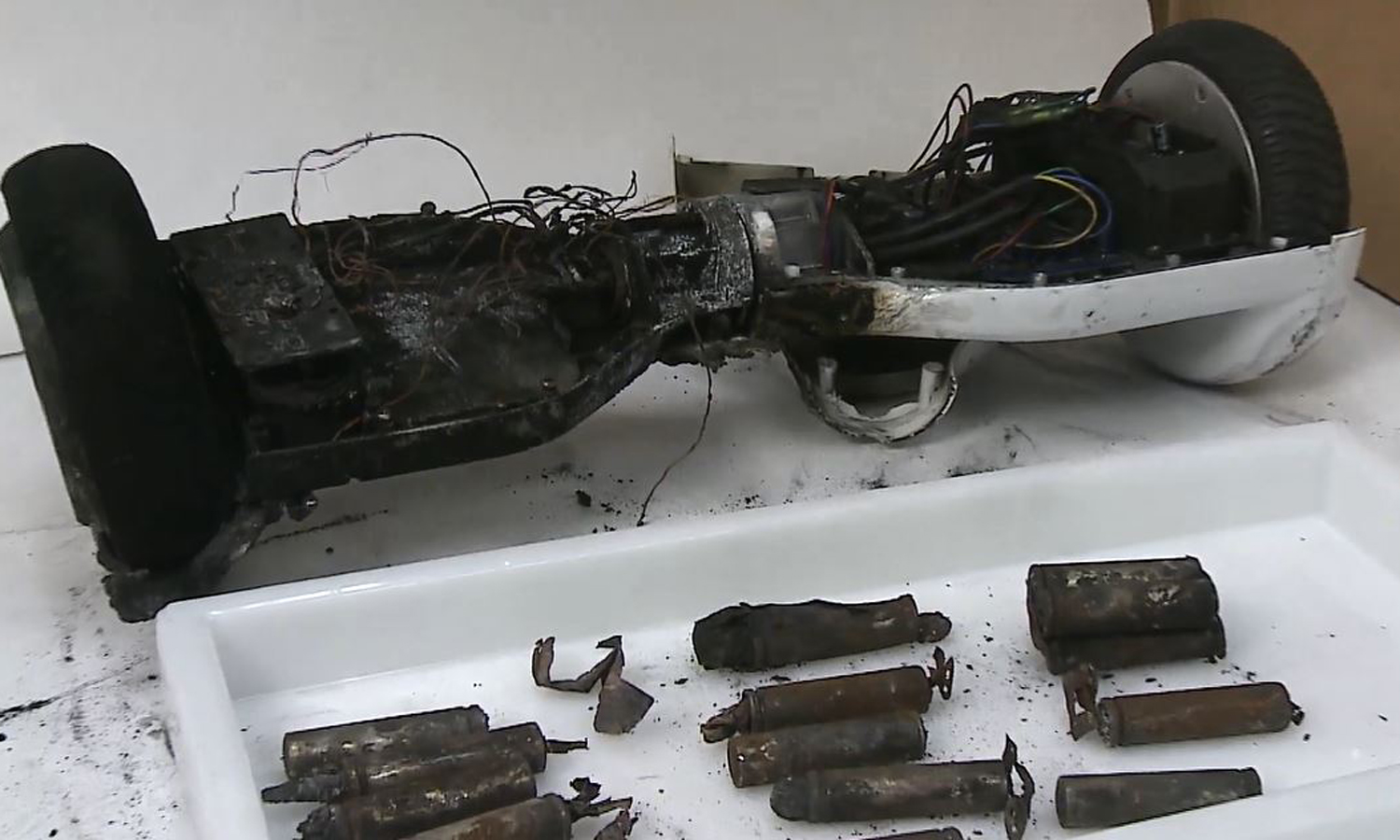All Hoverboards in U.S. 'Defective,' Says Gov't Agency
The Consumer Product Safety Commission says all hoverboards sold in the U.S. must be UL-certified for safety. So far, no models have been.
Here at Tom’s Guide our expert editors are committed to bringing you the best news, reviews and guides to help you stay informed and ahead of the curve!
You are now subscribed
Your newsletter sign-up was successful
Want to add more newsletters?

Daily (Mon-Sun)
Tom's Guide Daily
Sign up to get the latest updates on all of your favorite content! From cutting-edge tech news and the hottest streaming buzz to unbeatable deals on the best products and in-depth reviews, we’ve got you covered.

Weekly on Thursday
Tom's AI Guide
Be AI savvy with your weekly newsletter summing up all the biggest AI news you need to know. Plus, analysis from our AI editor and tips on how to use the latest AI tools!

Weekly on Friday
Tom's iGuide
Unlock the vast world of Apple news straight to your inbox. With coverage on everything from exciting product launches to essential software updates, this is your go-to source for the latest updates on all the best Apple content.

Weekly on Monday
Tom's Streaming Guide
Our weekly newsletter is expertly crafted to immerse you in the world of streaming. Stay updated on the latest releases and our top recommendations across your favorite streaming platforms.
Join the club
Get full access to premium articles, exclusive features and a growing list of member rewards.
If you see a hoverboard for sale, think long and hard before buying it. The United States Consumer Product Safety Commission (CPSC) has decided that no hoverboard currently on the U.S. market can be considered safe until it meets new safety standards.
"Self-balancing scooters that do not meet these voluntary safety standards pose an unreasonable risk of fire to consumers," said a notice to manufacturers, importers and retailers, issued yesterday (Feb. 18) and signed by Robert J. Howell, acting director at the CPSC's Office of Compliance and Field Operations. The CPSC sent Tom's Guide a full copy of the notice.

The CPSC wants hoverboards to conform to safety standards governing self-balancing scooters announced earlier this month by UL, formerly known as Underwriters Laboratories, an independent safety-certification company that tests most electric and electronic devices sold in the United States. UL's certification applies not only to the typical two-wheeled hoverboard, but also to single-wheel units and any other self-balancing transportation devices.
UL confirmed to Tom's Guide that no self-balancing scooter has yet been certified. Until one is, all hoverboards in the U.S. market are to be considered "defective" and "may present a substantial product hazard," according to the CPSC notice. Imported devices that don't have the UL stamp may be seized at ports, and the CPSC could force recalls of sold units. (This story was first reported by Mashable.)
MORE: Hoverboard Buying Guide: 10 Things You Need to Know
No recalls have yet been forced by the CPSC. For the moment, the commission is asking those who manufacture and sell the devices to remove them from the U.S. market until they are UL certified. Consumers should check with retailers and manufacturers to see if any have voluntarily recalled the devices.
Between Dec. 1, 2015 and Feb. 17, 2016, the CPSC received reports of 52 self-balancing-scooter fires in 24 states, resulting in $2 million in property damage including "the destruction of two homes and automobile," according to yesterday's notice.
Get instant access to breaking news, the hottest reviews, great deals and helpful tips.
CPSC Chairman Elliot F. Kaye told Mashable that the commission had conducted many hoverboard tests, which included voltage tests, inspections of circuit boards and CT scans of batteries. The agency did not see anything catch fire, but did observe melting and overheating.
In December, Amazon purged a number of hoverboards from its site following reports of hoverboard fires, including a high-profile case in Chappaqua, New York. In late January, the CPSC announced that Amazon would be offering full refunds to hoverboard buyers who asked for their money back.
If you are going to purchase a hoverboard or other self-balancing transport vehicle, make sure to do two things. First, look for the round UL seal on the gadget's packaging. Second, check UL's hoverboards website to make sure that model really has been certified; last month, UL alerted customers that Swagway had been putting fake UL seals on its hoverboard packaging.
Andrew E. Freedman is an editor at Tom's Hardware focusing on laptops, desktops and gaming as well as keeping up with the latest news. He holds a M.S. in Journalism (Digital Media) from Columbia University. A lover of all things gaming and tech, his previous work has shown up in Kotaku, PCMag, Complex, Tom's Guide and Laptop Mag among others.
 Club Benefits
Club Benefits











